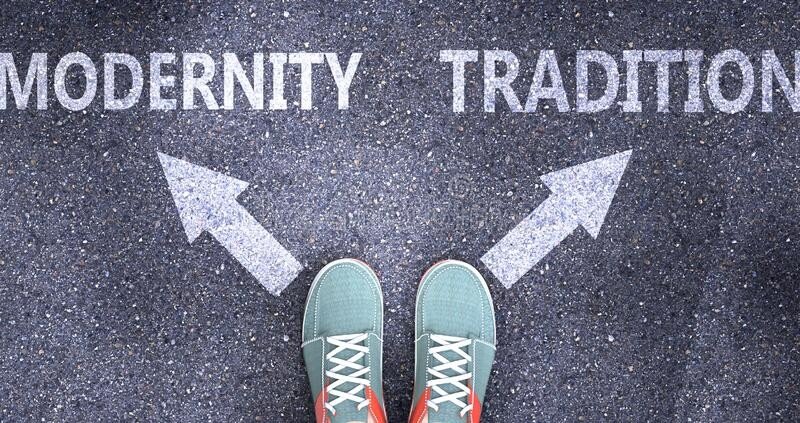The modern life comes with many changes—societal, political, and even religious. We keep evolving and compromising in the name of convenience and a change of times. So today, I thought I could look into how traditional values have evolved in modern Ugandan families.
We come from a culture deeply rooted in community, where your neighbor’s child was your child, and your grandfather’s word was law. Marriage wasn’t just about two people falling in love; it was a union of clans, a carefully arranged partnership that came with expectations, pride, and a long list of rituals. Respect, chastity, obedience, and clearly defined gender roles were the pillars of many Ugandan households.
But like the Nile slicing through time, change has found its way into our living rooms, dinner tables, and relationships. The Uganda of today doesn’t entirely mirror the Uganda of our grandparents—and it’s a change we’re all still trying to wrap our heads around.
From Arranged to Affection, Modern Marriage Norms
Let’s start with marriage. Back then, love had nothing to do with it. Among the Bakonzo, for example, girls were married off young, and premarital sex was taboo. Families chose spouses with tradition, wealth, and tribal continuity in mind. Today? Well, things change.
Modern Ugandan families are witnessing a rise in love-based relationships. Young people now choose their partners, often waiting until after education or career stabilization to tie the knot. While this empowers individuals, it also creates friction. Parents often feel left out of the process, while the institution of marriage itself seems to be losing its cultural grounding.
Parenting: From Community Duty to Nuclear
Remember when the whole village raised a child? Aunties, uncles, neighbors, even the boda guy next door all had a say in your upbringing. In fact, some random stranger could easily lay you down for a few canes for not meeting them on the way. That’s no longer the norm, try disciplining someone’s chile and see the fury…
With urbanization and smaller family units, parenting has become more individualized, especially with families opting for a more nuclear approach as opposed to the extended families and homesteads of some decades back.
The Ugandan government even introduced comprehensive parenting guidelines—some traditional and modern advice on parenting to help families navigate child-rearing in today’s complex environment,.
This isn’t all bad. Parents are more present, children have more open communication with guardians, and punishment is (thankfully) less likely to involve the nearest stick. But on the flip side, it’s also bred isolation. Many young families feel overwhelmed and cut off from the support system their parents once had.
Ugandan Introduces Parenting Guidelines – Nile Post
Gender Roles Are No Longer Set in Stone
Traditionally, men hunted and provided. Women cooked, cleaned, and raised the children. It was a system that, while consistent, also locked many into roles they didn’t choose. It simply was how things were.
Say that today and the backlash you will have will be borderline violent, women are doctors, engineers, and entrepreneurs. Men are stay-at-home dads, chefs, or working alongside their wives to manage homes and businesses. This change towards equality is powerful—it has allowed families to function as teams rather than hierarchies, and also managed to alleviate financial burdens where the two successfully cooperate.
Still, this evolution doesn’t come without cultural tension. Older generations sometimes struggle to accept the new normal, and societal pressure can make men who take on non-traditional roles feel “less than.”
On top of that, it has led to a trend of the strong Independent Woman—a mindset that celebrates self-sufficiency and ambition. Many women today are choosing to pursue careers, delay marriage, or opt out of traditional expectations altogether. For some, it’s about freedom and growth. For others, it’s a necessity driven by economic reality. Either way, it adds another layer to the changing family dynamic and raises new conversations around roles, responsibilities, and partnerships.
Sex, Silence, and a New Kind of Talk
Sex was once an off-limits topic. Parents rarely spoke about it, schools avoided it, and the culture relied heavily on abstinence teachings and fear. But that silence did more harm than good.
With the rise of teen pregnancies and STIs, the country is cautiously stepping into comprehensive sexual education. Parents and religious institutions remain split—some still advocate for abstinence-only messaging, while others recognize the power of equipping youth with real knowledge and access to contraception.
This change is essential but tricky. It’s not just about health—it’s about identity, values, and redefining what we pass on to the next generation.
LGBTQ+ and the Fight for Recognition
One of the biggest cultural shocks facing traditional Ugandan values is the conversation around sexuality. Homosexuality remains criminalized under the Anti-Homosexuality Act of 2023, and LGBTQ+ rights are still a heated battleground in both political and religious spaces. Uganda simply wants none of that.
While many Ugandans still view non-heteronormative identities as taboo, younger generations—especially those in urban areas—are more exposed to diverse worldviews, creating a widening generational gap on the topic. The struggle here isn’t just legal; it’s moral, spiritual, and deeply emotional…personal.
Social Media Parenting: How Online Parental Feuds Are Emotionally Damaging Children Under 18
The Impacts of Modern Uganda
Let’s be real: change is a double-edged sword. On one side, we’re seeing empowered women, educated children, healthier families, and more open communication. People have more choices—who to marry, how to raise children, and how to define themselves.
But on the other side, there’s confusion, loss of culture, and broken intergenerational relationships. The values that once held communities tightly together are weakening. The sense of collective responsibility is fading. And sometimes, in trying to be modern, we lose touch with what made our families strong to begin with.
Modern Ugandan families are walking a tightrope between tradition and transformation, do they forego all that they grew up on and adopt the modern way? or do they remain true to their values? Well, at the end of the day, family is still family—whether gathered under a thatched roof or chatting in a WhatsApp group. I find the best way, perhaps is to see what works for your family. Sure, modernity is here to stay and still going on for a very long while, but that doesn’t negate the core values for which we can stand.
Are You Too Hard on Your Child? The Long-Term Consequences of Harsh Discipline in Parenting




